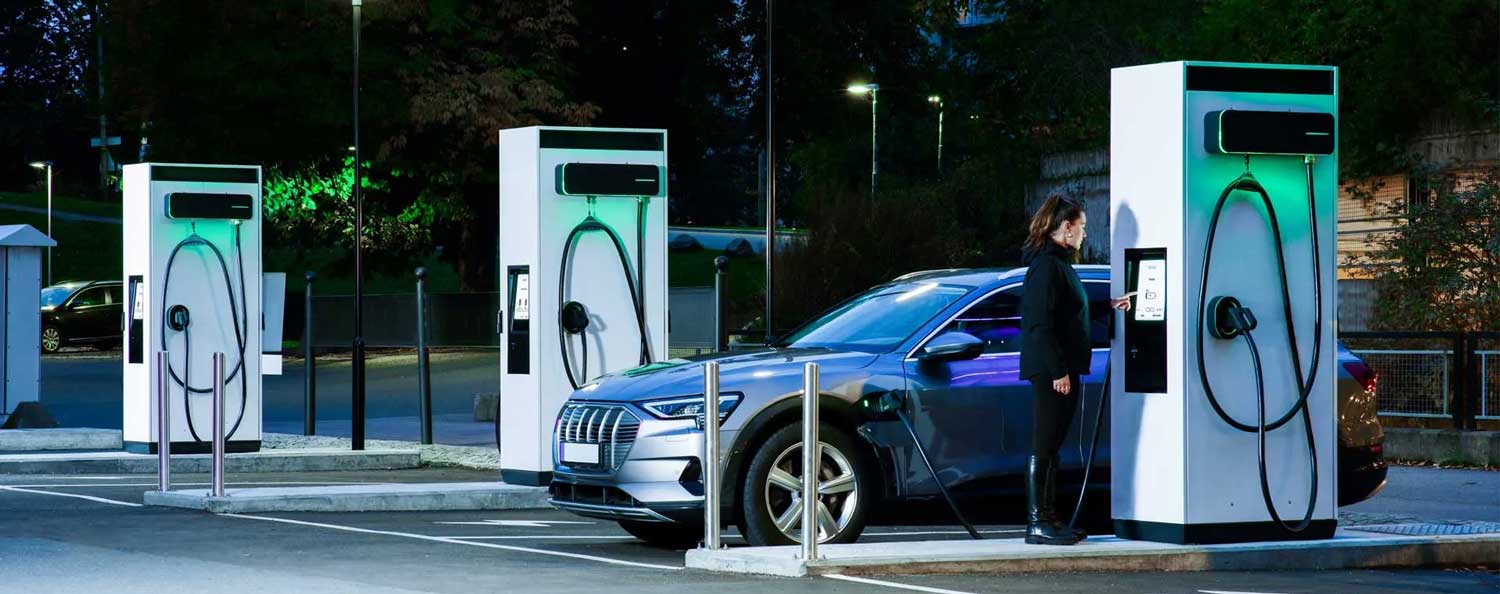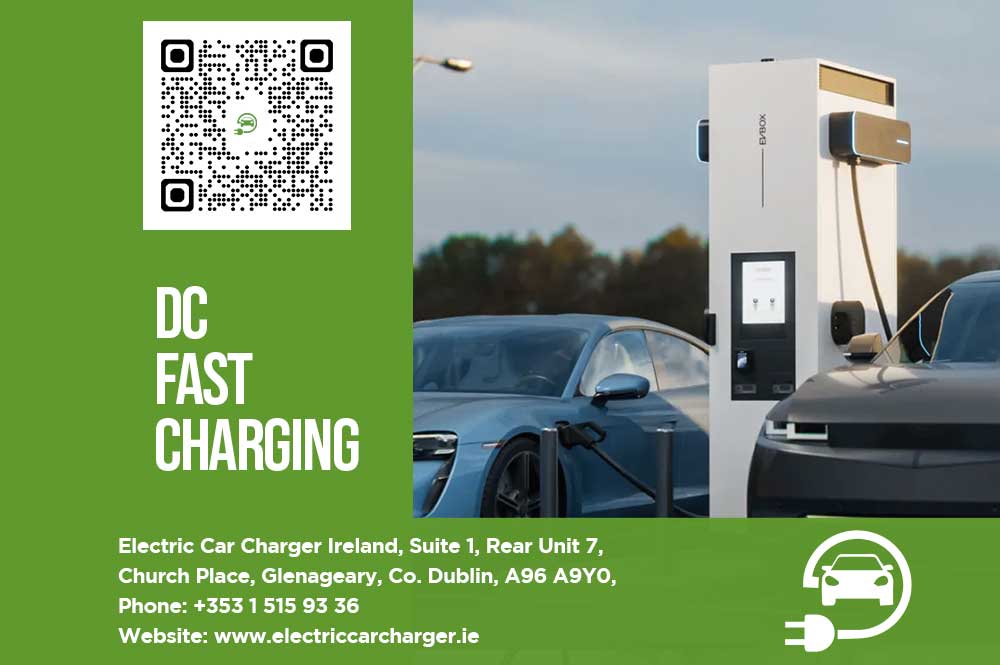Table of Contents
- Exploring the Impact; Can DC Rapid Charging Damage Your Electric Car Battery?
- Essential Details about Electric Vehicle Batteries (EV Batteries)
- Exploring Charging Options; AC versus DC
- Does DC Fast Charging Impact EV Batteries?
- Recent Developments, in Electric Vehicle Charging Technology
Exploring the Impact; Can DC Rapid Charging Damage Your Electric Car Battery?
The presence of vehicles (EVs), on our roads has increased rapidly driven by their eco nature and technological progress. EVs play a role in reducing greenhouse gas emissions and shaping a sustainable future, partly due to improved EV charging infrastructure. Essential to this evolution are electric vehicle batteries, which power the advancement of these vehicles, often facilitated by efficient EV charging methods. A common concern among EV owners and potential buyers is the impact of DC charging on these batteries. This article aims to provide insights into their functionality, longevity and how charging methods, such as using a fast charger, influence them.
Essential Details about Electric Vehicle Batteries (EV Batteries)
Before delving into the effects of DC charging on vehicle (EV) batteries it is important to understand how they operate. Unlike cars that use combustion engines for movement EVs rely on electricity stored in rechargeable batteries connected by wires for quick voltage supply.
Lithium-ion batteries have emerged as the main option for vehicle (EV) battery technology due to their high energy density extended lifespan and rapid charging capabilities.
While Nickel Metal Hydride and Solid State batteries may offer energy density and safety features, they are often more cost-effective in vehicles or provide less expensive energy storage capabilities when paired with a Level 2 EV charger. It is anticipated that Solid State technology will eventually be widely adopted in vehicle (EV) sales.
The evolution of EV battery technology has been remarkable over time, with advancements in DC fast chargers playing a pivotal role. Initially early models had limited driving range and required lengthy charging periods. However, with the advancements modern battery packs can now power an EV for hundreds of miles before needing a recharge. A significant advancement that has made EVs practical and accessible for everyday use involves the development of fast chargers.
Similar to battery types EV batteries also have a lifespan known as their health. Through usage and aging their ability to retain charge diminishes gradually leading to driving range.
The lifespan of an EV battery varies depending on factors like its type, management system driving patterns and especially charging practices. This makes predicting a battery’s longevity quite challenging; research suggests an EV battery could last beyond 10 years while still maintaining 80% capacity if managed and maintained properly.
Effective charging practices, including the use of fast chargers, are crucial in preserving and extending the life of EV batteries. Repeatedly going through charging cycles prolonged exposure to temperatures and rapid fast charging can speed up the degradation process of your EV battery. This is why there is a debate surrounding DC charging. We will delve into the impact and implications on the health and lifespan of your vehicle’s battery in the following sections.
Exploring Charging Options; AC versus DC
Charging a vehicle (EV) typically involves two methods. Alternating Current (AC) charging can be done at home or charging stations using electrical outlets to supply power with the onboard charger converting AC to DC power for recharging the battery.
On the other hand, DC charging requires stations that directly convert AC electricity to DC before delivering it straight to vehicles without involving their onboard chargers enabling faster charging speeds—thus known as fast charging.
While AC charging may be slower its gradual approach makes it suitable for extended parking scenarios, as opposed to the rapid charging speed offered by fast charging stations. In contrast, fast charging offers solutions for road trips, when immediate recharging is needed—reaching 80% capacity within 20 to 30 minutes based on battery size and station power output.
Does DC Fast Charging Impact EV Batteries?
Let’s start with the essentials. Does DC charging affect the batteries in electric vehicles (EVs)? There are repercussions here, and things to think about include how long the battery takes to charge and its general condition.
The batteries in electric vehicles can deteriorate over time if they are charged frequently. This is because, in contrast to slower AC charging, the heat produced during charging exerts pressure on the battery. DC rapid chargers, in particular, can accelerate wear and tear processes that may negatively impact system components.
Your battery’s health will depend on how you use your charger; regular use can drastically shorten its lifespan and performance, while infrequent use may have some effects. Battery cooling systems are essential for protecting batteries while charging because they control heat and shield the batteries from thermal damage.
In light of the results and the quick development of this technology, modern electric vehicles are now equipped with charging systems that protect batteries from harm resulting from rapid charging. Among these are charging speed optimisations and heat management technologies.
Achieving a balance between long-distance charging and AC charging when you have more time is crucial for preserving battery health and optimizing the benefits of charging. Success requires the use of both strategies.
You can increase the lifespan of your batteries by keeping an eye on their condition and charging routine. Thankfully, there are features that offer advice on charging techniques and insights into battery health available on a large number of contemporary electric cars.
Recent Developments, in Electric Vehicle Charging Technology
As the electric vehicle (EV) market develops, technological advancements are also becoming more noticeable. Fast charging systems are intended to shorten charging times, however, there are worries that they may have an adverse effect on battery life.
With queues at public charging points getting longer, some companies are opening power swap stations where you can simply exchange your battery for a fully charged one, users can swap out for a fully charged one to resume their trip.
There are initiatives afoot to enhance battery technology and lessen the impact of charging. This entails creating battery varieties and improving battery-health-preserving management systems designed for charging.
Though high-speed fast charging may present challenges to EV batteries, implementing charging strategies and technological innovations could help address them. To make informed decisions moving forward it is vitally important to comprehend both its benefits and limitations (i.e. differences between Level 2 chargers and DC fast chargers) so as not to misguide one’s decision-making process.
Related search terms: , Level 2 charging, EV charging stations, Level 3 charging, charging network, charging infrastructure, charging rate, combined charging system, charge an EV, vehicle’s charging, vehicle’s battery, electric vehicle’s battery, charge an electric vehicle, AC power to DC, AC and DC, public charging, Level 2 AC, , charging experience, time it takes, Level 1 charging, charging solutions, charging cable, converted to DC, Tesla vehicles, DC power directly, charging is essential, Level 2 charging stations, AC charging and DC fast, , takes to charge an EV, difference between AC and DC, find a DC fast, electric vehicle charging, directly to the battery, Level 2 AC charging, charging is the most common, difference between AC charging, EV batteries, charging your electric vehicle, EV charging network, EV charging infrastructure, electric vehicle battery, , DC chargers have been getting, three types of DC fast, using a DC, every EV battery, time it takes to charge, method of charging, public charging stations, DC charging stations, find a DC fast charger, hour of charging, charging works, fast charging stations are ideal, levels of EV charging, type of electric vehicle charging, faster the EV battery, direct current fast, fastest charging, DC fast-charging, faster EV charging, Level 2 AC chargers, fast and ultra-fast, range of DC, charging every day, charging capabilities, charging your EV, makes Level 3 DC, type of charging, faster than Level 2 AC, EV Charging Station Contractors
Ever wondered about Electric Vehicle Batteries ….Check out our latest blog post for details.



